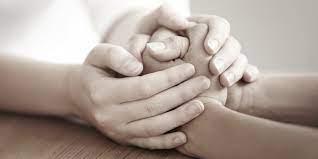Explore the World's Best Ideas
Join today and uncover 100+ curated journeys from 50+ topics. Unlock access to our mobile app with extensive features.
Comparisons
When you are coping with something difficult in your life, it isn't uncommon for someone else to say " it could be worse."
Comparing your own pain and other emotions to others is common, but that does not mean that is always helpful
In other cases, comparisons can stifle growth, prevent self-compassion, and even make it more difficult to empathize with other people.
Some ways that comparing feelings might be harmful are listed below.
114
867 reads
People experience things differently
Each individual has different resources and experiences that play a role in how they are affected by different emotions. just as not all people feel joy the same way, not everyone fee;s pain in the same way.
there is not a hierachry of emotion that says that one person's feelings are better or worse, stronger or weaker that someone else's.
For example, if you are going through an emotionally painful loss, you might be tempted to compare what you are feeling to someone else who has gone through something that seems objectively worse.
It is important to remember that hurt is hurt. Comparing your pain to someone else who seems to be suffering more only serves to minimize what you are feeling.
102
408 reads
Comparison often leads to minimization
The focus of comparing your emotions is often to minimize ether what you are feeling or what they are feeling. some examples include:
- You might think that you don't have the right to be upset about something because someone else is going through something worse.
- You might feel like you don't have the right to feel lonely because you have more friends and family than another person does.
But someone else's experiences do not negate your own. In such cases, comparing feelings is a way of minimizing your own experiences.
This is something that you might do to avoid feeling a negative emotion. Rather than face it, it is easier to dismiss it as being "not as bad as it could be."
86
291 reads
It keeps you from facing your feelings
Even if someone else's sitation is objectively "worse" than yours, it doesn't mean that you are not experiencing very real, very valid emotions.
You are allowed to feel upset when someone hurts you or disappointed when something doesn't work out the way that you wanted it to.
Yes, other people also have their own pain and disappointments to face, but those experiences don't diminish or eclipse yours.
Negative feelings can increase stress when they aren't dealt with properly. But even difficult emotions can be important sources of information. They can tell you that something needs to change and help motivate you to make positive changes in your life.
92
230 reads
Everyone deserves help
Comparisons often lead people to think that they can just deal with there problems on their own. Rather than reach out for help and support, people are often left feeling that their issues aren't serious enough to warrant attention.
A person who is experiencing symptoms of depression, for example, might not seek out help because they think that they don’t have any “reason” to feel depressed, especially when they compare their life and experiences to other people who seem to have it worse.
In such cases, comparisons can lead to avoiding your problems rather than finding ways to address them. Even if you feel like your problems "aren't that bad," you still deserve support and help.
87
226 reads
How to respond instead
The next time you are tempted to compare feelings to someone else's, take a step back. Will it be helpful? Or are you using it as a way to dismiss your emotions? Instead of comparing:
- Allow yourself to sit with your emotions without judgment.
- Give yourself permission to feel what you are feeling and remind yourself that your emotions are valid.
- Lean on others but don't feel the need to minimize your struggles or compare your problems to theirs.
- Avoid judging other people’s emotions. Instead, focus on valuing the fact that they are willing to share what they are feeling with you.
- Listen to what people are saying. Acknowledge what they are feeling. Simply saying that you can see how hard it must be and that you are there to listen can be a crucial way of offering validation and support.
87
218 reads
When comparison might be helpfull
The reality that some defree of comparisons iss inevitable. people are simply wired to notice what other people are experiencing adn then consider how it compares to their own sitation. And in some cases, it can actually have a positive effect, including:
- Comparisons may help you feel gratitude for your own life.
- It may help you consider options and think about what you want.
- It can lead to observational learning where you gain knowledge without actually having to go through that experience yourself.
- It can help you see what you need to do in order to achieve what you want in life.
- It may help you feel more compassion for others, which can help compel you to volunteer to help.
minimizing your pain is not a part of gratitude. you can be grateful for the good things in your life and still feel dissapointed, sad, or upset
83
179 reads
IDEAS CURATED BY
I'm passionate about helping people live their best lives. I'm a lifestyle coach & burnout coach.
Rogier. H's ideas are part of this journey:
Learn more about personaldevelopment with this collection
The role of coffee in social interactions
Different types of coffee and their preparation
The impact of coffee on society and economy
Related collections
Similar ideas
8 ideas
5 ideas
The Paradox Of Getting Over Someone You Never Dated
betterhelp.com
Read & Learn
20x Faster
without
deepstash
with
deepstash
with
deepstash
Personalized microlearning
—
100+ Learning Journeys
—
Access to 200,000+ ideas
—
Access to the mobile app
—
Unlimited idea saving
—
—
Unlimited history
—
—
Unlimited listening to ideas
—
—
Downloading & offline access
—
—
Supercharge your mind with one idea per day
Enter your email and spend 1 minute every day to learn something new.
I agree to receive email updates







